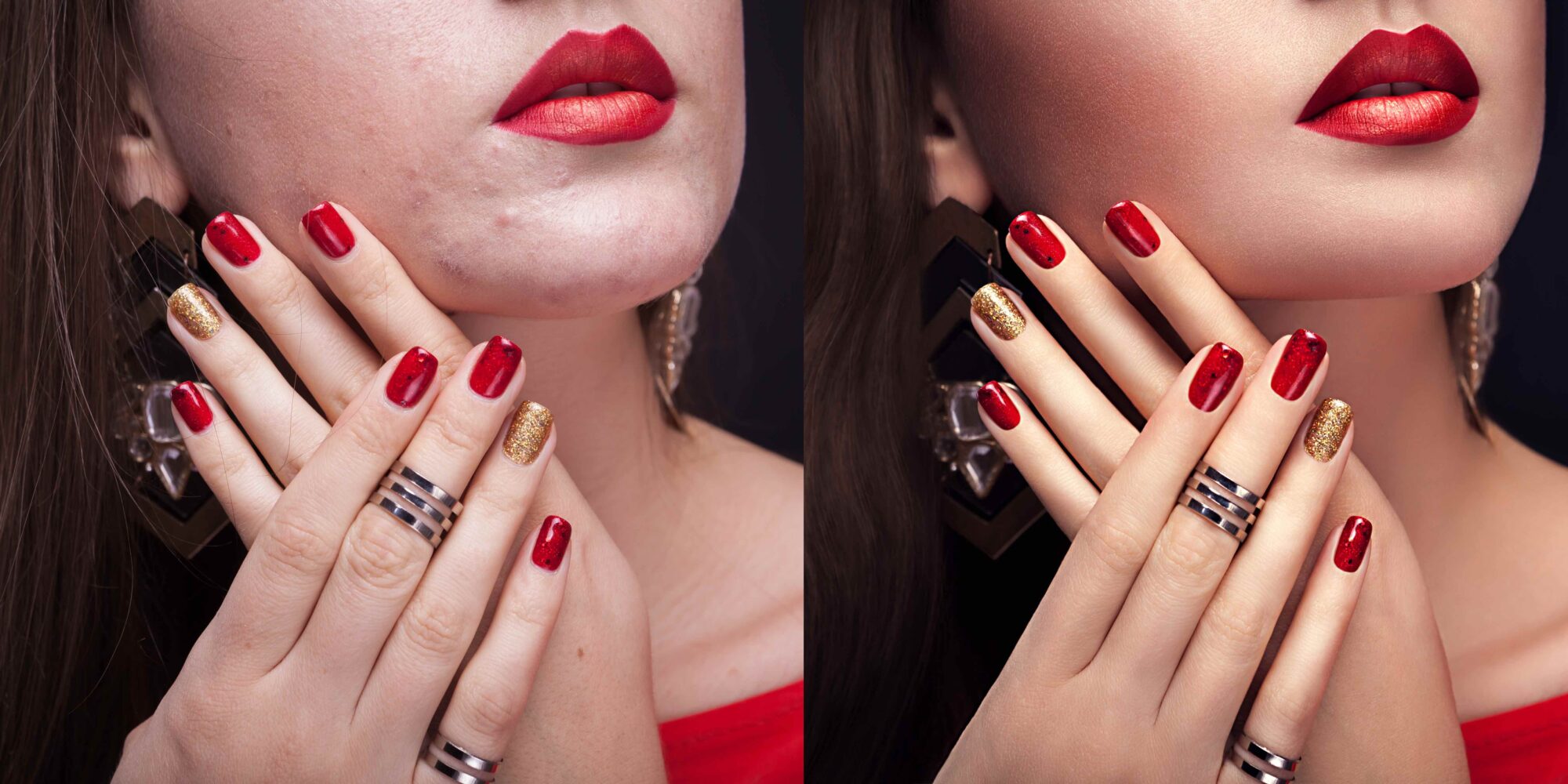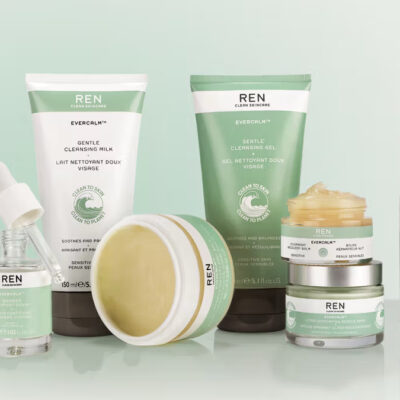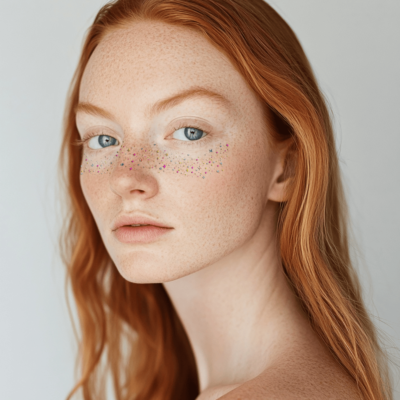
When Is An Image A Harmful Lie? Beauty Brands Weigh In On The Great Debate Over Social Media Filters
Huda Beauty founder Huda Kattan has committed to not using filters on her Instagram account and agreed to an advertising rule enacted in the United Kingdom that prohibits misleading filters. The advertising rule follows model and makeup artist Sasha Pallari’s #filterdrop campaign calling on brands and influencers to disclose filters.
As the pervasiveness of social media filters and an interest in regulating them increases, we decided to check in with 22 beauty brand founders and executives to get their thoughts. We asked them: How do you approach filters? What do you think about the conversation around the ethics of filters, and how the beauty industry should proceed with them?
- Aishetu Dozie Founder, Bossy Cosmetics
Filters are such a tough topic, and I think we need to be careful about what we mean when we say "filters." Some filters dramatically distort the image, but so do traditional enhancements using tools such as Adobe to edit photos. I recently had to tell a photographer that a photo looked too “fake.” The model had no pores.
I think it’s an ecosystem challenge. Everyone wants a level of perfection that is completely unreachable, and it goes from brands to photographers to editors to magazines and to influencers. I’ve had to tell influencers that I cannot post their photos because they are so filtered that the color of the lipstick is wrong.
There is a gentle balance between color correcting a photograph and completely editing it to where the subject is not who they actually are nor is the product that they are advertising. I try to err on the side of caution and use only photos that aren’t heavily edited, and I ask all influencers not to send us photos that have filters. I do the same with photographers, too. The responsibility is on all of us to ensure that we aren’t perpetuating completely unrealistic depictions of beauty.
- Nisha Dearborn Founder, Fresh Chemistry
Huda has said, "I’m a mom, I worry about my daughter and the beauty industry that we are shaping for her future, if we don’t start speaking up then we are selling 100% lies and that’s bullshit," and I could not agree with her more.
This is exactly why I started Fresh Chemistry. I believe women deserve the truth. Our industry has a long way to go, but I completely agree that being truly honest about what your skincare or makeup product can do versus what photoshop, filters and fillers can do is the only way to go. Women deserve that respect.
- Rhonda Marshall Co-Founder, Inahsi Naturals
We are a hair products company which focuses on embracing your curly hair texture. In fact, you will see on every bottle the phrase, “Loving the You that You Were Born into.” To promote filters or even to allow influencers or customers to use it to promote our brand goes against our message of embracing your curls. Moreover, our products speak for themselves. Our customers are often amazed at the results they receive from first use. They, in fact, want to show off their true results.
I totally agree with the U.K. advertising rule [and believe] that filters should be disclosed. This rule is necessary especially when it comes to advertising makeup because so much of the buyer’s decision to purchase is based upon how well the product performs on the person wearing it. Disclosing filters in advertising allows the potential customer to make an informed decision about whether they want to purchase.
For example, let’s take a look at foundation. During the pandemic, many stores were closed, so we could not go into the store to try it out. We were at the mercy of social media advertisements to help us determine if that foundation is for us. But, if filters are used, we cannot make a true assessment if this foundation is the perfect match for our skin. To use filters would be false advertisement because the customer is given a false sense of the performance of makeup due to the use of filters.
I believe the beauty industry should proceed with caution when using filters. To use filters to enhance packaging is one thing, but, when it comes to assessing the product performance, it should not be allowed.
- Leah Robert Co-Founder, SaltyGirl Beauty
We love a fun filter, but we’re talking about exaggerated puppy ears or hearts floating around our faces. When it comes to representing real beauty and encouraging others to embrace their own real beauty, we are not ones to erase wrinkles, even out our skin tone or change the shape of any of our natural features using filters. It’s most certainly misleading, and it’s not what we stand for as a brand.
If we’re selling foundation or lipstick, we let the product speak for itself. We think that’s how it should be with every brand. Doing anything different is to contribute to an ecosystem that breeds low self-esteem and perpetuates unrealistic beauty standards.
- Janet Schriever Founder, Code of Harmony
We love this initiative! We understand the desire to use filters as a way to achieve flawless results, but, in reality, filters are misguiding women to believe that flawless beauty is readily attainable and preferred. The conversation regarding filters should include how they actually help to foster the notion that perfection is attainable, that our imperfections are not desirable and, furthermore, that the beauty product being advertised will help you attain that perfection. Why not pivot our obsession with perfection to acceptance of our own natural, unique beauty? Let's use cosmetics to enhance our physical attributes rather than to conceal them!
- Arielle Brown Founder, Bea's Bayou Skincare
I think it is admirable that the beauty industry is paying attention to the effects of social media and how filters may affect the psyche of its users. I grew up with phones where the most exciting feature was just having games, so filters for me have been fun, but there are many young women who I notice do not share their face unless a filter is on.
For my skincare line, I post my skin in live videos, too, so people know that I am not doctoring my skin in order to just sell them products. I think beauty brands would do well to ask their marketing influencers to reserve using filters when reviewing or sharing their products and be in solidarity about this. I would leave filters out of the equation when it comes to a review.
- Kim Walls CEO and Co-Founder, Furtuna Skin
The beauty industry is a highly creative place. Context must be considered. Filters, makeup, outrageous hairstyles and elaborately fashionable costumes are entertaining and fundamentally valuable for the fact that they help us tell our stories, they inspire, and they are a form of art and communication. I absolutely believe that media tools like Instagram and TikTok can and should be used for art. If someone is using a filter to shape, inform or amplify some certain creative vision, it makes sense to use it. If a person is using a filter to misrepresent in a way that is harmful to our collective psyche at scale, they are participating in the downfall of humanity.
On parallel, should we legislate whether or not a film can be remastered (filtered) to artificially amplify the colors? Probably not. Should we be mindful that suicide rates are rising, and can be specifically connected to feelings of dejection, isolation and the rise of use of social media? Yes. Are misrepresentations commonly shared through social media worthy of legislation be they through powerful creative tools like filters or the compelling words of the sad, psychotic and lonely)? Probably.
But where do we draw the line? I think every situation is different, and I truly hope that our internal moral compasses can be our best guides. Getting beyond the selfie, who are we as siblings, partners, neighbors, friends and lovers? I think loneliness is a much bigger problem than filters and would ask the global community, politicians, influencers and ourselves, how do we work on fixing root causes? Filters are easy to focus on, but they aren’t the problem.
- Nicolas Travis Founder, Allies of Skin and PSA Skin
At Allies Group, we don’t believe in retouching any of our ads for our two brands. I founded Allies of Skin and PSA based on the belief that skincare is a journey and that it isn’t always a straight one. So often, we’re used to seeing all the “after” shots that we forget the “before.” It sets unrealistic expectations because the truth of the matter is that skincare works only on the surface of the skin.
For example, if you have persistent crow’s feet and dark circles that bother you, using an eye cream, no matter how expensive it is, will not get you anywhere. You are better off seeing a dermatologist for some fillers and Botox. That’s the hard truth. Thus, I’m all for filters being disclosed, and the industry being more transparent about what enhancements were done to visuals post-photography.
- Dimitra Davidson President and COO, Indeed Laboratories
From our very beginnings, we have always been about showcasing people in their true element, real and unfiltered. And that was back when actual filters as we know them today barely existed. In all of our campaigning, we have tried our best to be real and unedited. I am happy about this movement and happy that we are in an industry that supports the very messaging that our brand led with.
- Charlotte Knight Founder, Ciaté London and Skin Proud
As it pertains to the conversation around and ethics of filters, in April 2020, we launched our first skincare brand Skin Proud, a cruelty-free, vegan, clean and sustainable brand targeting a gen Z audience. The brand was developed with strong ethos in mind: being proud of the skin you are in. Our slogan is, “Be You, Be Proud,” and we really wanted to capture the essence of transparency and inclusion which we felt is still missing in our industry.
From day one, we pledged to never photoshop any of our imagery. We wanted to show real skin with all its perfection and imperfection to fight stigma around scars, acne and any other problems we have been so ashamed to talk about for years. To further educate the industry, at the end of last year, we launched a petition (be proud, not perfect) to the Advertising Standards Authority (ASA) in the U.K. to forbid photoshopping in all skincare ads. We have worked with psychodermatologist Dr. Alia Ahmed, whose expertise lies in the connection between mental health and skin and how skin conditions can negatively affect our sense of wellbeing.
We are all very excited that, at the beginning of this year, ASA took action and stopped influencers from using misleading beauty filters. We hope that even more industry leaders will follow our lead, take a stand and portray more realistic beauty images.
- Christine Martey-Ochola Co-Founder, Nuele
Filters are an extremely prevalent feature of social media in today’s age, and they’re extremely dangerous because of the false reality they present. We strive to not add filters to our imagery and instead present the beauty of the shot, perceived flaws and all. Here at Nuele, we think beauty is being unapologetically you, as you stand today. It’s about showcasing your individuality, unapologetically and proudly.
We commend large companies like Huda Beauty for taking steps to break down the dichotomy of social media versus reality. They are role models for young teens everywhere, and the standards they present will stay with these girls and boys for years. It’s better that those standards are relatable.
- Salome Sallehy Founder, Sugar Sugar Wax
Huda Kattan is a founder that has first-hand experience being an outsider of the mainstream, and she’s not afraid to be authentic and use her voice. The disclosure of filters and the ethics around how we use them is especially important for the younger generations that are growing up in a highly filtered world that is so far from reality that it can’t be sustainable.
It’s so important for leaders in the space like Huda to get real with their followers and set realistic expectations and standards for beauty. It’s also brilliant for Huda as a brand to do that now that we have data pointing to gen Z’s aversion to the filtered world. This anti-Facebook generation is growing up not wanting to show their faces because they’re wise enough to know that they have so much more to offer the world than a filtered image of themselves. Other brands could really take a page out of Huda’s brilliant marketing playbook because, as long as they are representing “flawless perfection,” they’re alienating an entire generation of future brand loyalists.
- Ella Eser Co-Founder, LolaBlue Organix
My co-founder Delphine Yogurtjian and I are in agreement with Huda Kattan on this matter. Filters shouldn’t be used at all when promoting products. And, if they are, they definitely need to be disclosed worldwide, not just in the U.K. Filters completely alter reality, thus leading to unrealistic and unhealthy standards of beauty. As business owners, we would not want to set false expectations for the results our product can produce. That is a lose-lose scenario for both us and our customer.
The beauty and cosmetics industry needs to put health first, especially when it comes to skincare, which is vital for overall health. Aerie and Target are examples of two major brands that have committed to stop retouching photos and showcase natural beauty as it was meant to be. Brands in the beauty industry need to follow suit to reverse the damage that filters and airbrushing have done. It is 2021, and beauty is no longer a competition. It should be celebrated in all its shapes and forms!
- Marilyn Jones Founder, B Fragranced
I support Huda Kattan and her stance on filters, more specifically to those that have impact and are marketing/sales tactics that are misleading consumers in results. I totally agree that the use of filters should be fully disclosed so that consumers have full transparency. An eyeliner used on models with an added filter should be mentioned so that there is trust and transparency with your customer avoiding any future disappointment in purchases.
My personal belief outside of this ask is that makeup and filters are completely OK if it doesn’t become who you are. Your filters and makeup shouldn’t define who you are! Embellish who you are and your authentic self without the lenses of a filter. We are all beautiful and uniquely made, and it’s that difference that you bring that defines what true beauty is.
- Heather Fink Founder, The Sexiest Beauty
As far as the ethics of filters, I think it's difficult to manage and hold social media platforms accountable by the "filter police," but I do think it's wonderful that Huda would make this statement and walk the walk. The Sexiest Beauty is about modern women and men expressing themselves in authentic and empowering ways. We believe that sexy is a state of mind and actions, #SexyIsAsSexyDoes, being true to yourself, unconventionally, daringly, uniquely beautiful. As Huda states “We need to democratize beauty. We need everyone to own their own standard of beauty. We all need to be authentic."
- LEAH RODARTI Co-Founder, OH.SO
Disclosing filters would be beneficial for people. At OH.SO, we love natural beauty and natural products. We celebrate people loving themselves. Filters are just another tool to augment reality. These social media filters have made it more accessible to all. However, the concept of filters is not new as historically we have used makeup, dermatological procedure and photoshop to achieve these effects.
- Mar Cavalone Founder, Dome Beauty
Filters have changed the beauty industry and negatively influenced what true beauty represents. It is difficult for a young woman or girl to look at a picture-perfect photo and understand that beauty is not about perfection. At Dome Beauty, we approach this misinterpretation of beauty by making an individual connection with those we support by posting images that represent the vast community of makeup lovers and not just models you would see in a magazine.
We also have a partnership with Miss Amazing, a fantastic organization for women and girls to promote their abilities. We love to work with and welcome Miss Amazing models at all our photo shoots. We want our customers to…not feel like they need to look like someone else. We are committed to posting natural images without unrealistic retouching/filters. We only share UGC [user-generated content] that is realistic and representative of the person on our social pages.
The beauty industry has made so many impactful changes over the years, and I must give kudos to CVS for leading the way by recognizing the need to eliminate photoshopping their beauty images. I would love to see a coalition of indie beauty brand and clean beauty brand owners committed to eliminating filters and use a no-filter icon as proudly as we do Leaping Bunny or paraben-free.
- Angela Fields Founder, CurlyCoilyTresses
I appreciate Huda Kattan’s commitment to not using filters. It’s troublesome to me when young girls and even women are trying to meet an impossible standard of perfection in beauty. We should level the playing field to avoid the negative impacts on self-esteem for our girls and women.
- Annabella Joy Founder and CEO, Blessed Beauty Makeup
Filters have become so ubiquitous in our social media culture, I don’t see an end to their trending. Plastic surgeons have even reported patients requesting facial augmentation based on new filters, calling this phenomenon “filter dysmorphia.” How crazy it is that we are now redefining beauty through filter technology! Our industry has always used a degree of photo editing, but we have entered a new frontier of cartoon people and, as brand creators, I believe we have a duty to continue to encourage women to recognize and enhance their natural beauty with no need for surgery or the use of heavy filters.
- Cilia Fishman Co-Founder, Ladybug Potions
My co-founder Laura Khoudari and I understand the desire to use filters as a way to achieve flawless results, but, in reality, filters are misguiding women to believe that flawless beauty is readily attainable and preferred. The conversation regarding filters should include how they actually help to foster the notion that perfection is attainable, that our imperfections are not desirable and, furthermore, that the beauty product being advertised will help you attain that perfection. Why not pivot our obsession with perfection to acceptance of our own natural, unique beauty? Let's use cosmetics to enhance our physical attributes rather than to conceal them!
- Margarita Arriagada Founder and CEO, Valdé
This topic is so important and yet nuanced. At Valdé, we do not use filters. We are selective on partnering with photographers who share this philosophy. It is critical for brands and the industry to be proactive in changing the standards away from perfection. No amount of taglines by celebrities can help us feel worthy if the representation we see is not realistic. It is possible to be both aspirational and real. But the topic goes beyond filters. It is also about conversation to influence empathy from the public as there are "haters" that bring people down when one looks less than perfect, as Huda Kattan experienced.
- Karina Marconi Founder and CEO, Antedotum
At first, I didn’t think I was impacted by filters used in photography, but, in recent years with newer beauty campaigns that have shed light on the subject, it's made me more aware of how important of an issue it really is. There are so many young women who try to live up to this unrealistic standard of beauty seen in commercials and advertising and especially within the world of social media.
There is so much pressure to fit a mold in our current society that I believe is giving a misrepresentation of what true beauty is all about, resulting in higher rates of eating disorders and depression. Why not celebrate real beauty in all forms, with no air brushing, alterations or enhancements? I believe more companies in the beauty industry should stand by this trend. I also believe brands should insert a disclaimer on their photography should there be touchups. Hopefully, changes like these will create a more transparent, honest and realistic industry for future generations to look up to.
If you have a question you’d like Beauty Independent to ask beauty entrepreneurs, please send it to editor@beautyindependent.com.






Leave a Reply
You must be logged in to post a comment.